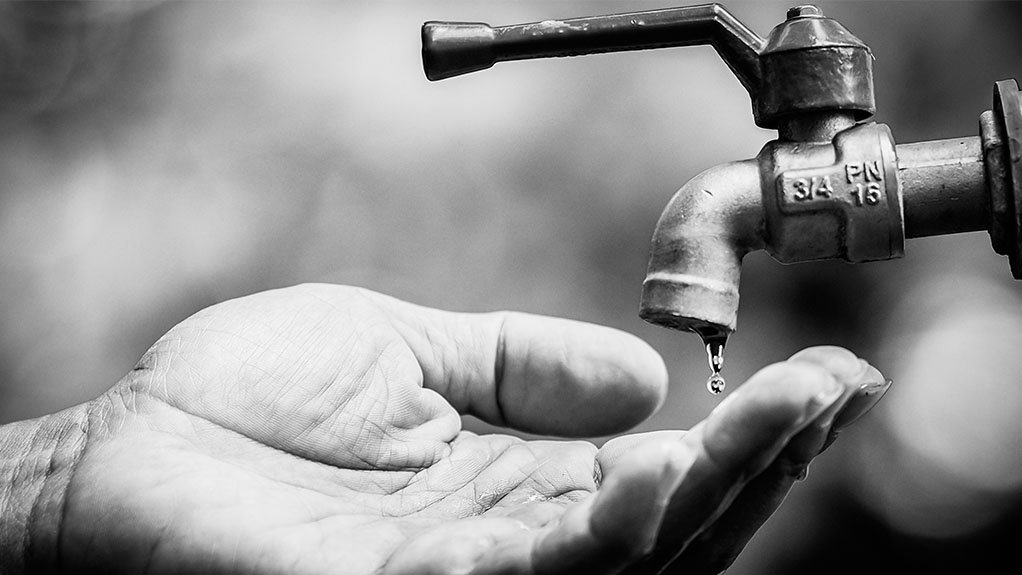Water a hurdle in Africa’s development - expert


WATER, WATER EVERYWHERE BUT... The scarcity of drinkable water is denting the development of Africa as a continent
Water scarcity poses a significant hurdle to Africa's growth and development, with climate change and deteriorating infrastructure intensifying the challenges, says advisory and analytics firm Frost & Sullivan consultant Hannro Steenekamp.
He explains that South Africa’s ongoing water crisis, where about half of Johannesburg's population of over 5.5-million people have been without water or have experienced shortages for weeks, serves as a dire warning.
“Residents often wait in long lines for government water trucks, with the supply frequently running out before reaching everyone,” he says.
This crisis highlights the urgent need for solutions and the immense opportunity for businesses and innovation to make a difference.
He points out the demand for clean water in Africa is only set to skyrocket with population growth and development projects.
The fact that 387-million people in sub-Saharan Africa lack access to essential drinking water in 2020 – up from 350-million in 2000 – demonstrates the staggering scale of need.
Moreover, as of October 2022, roughly 226-million people in Eastern and Southern Africa lacked access to essential water services, and about 381-million lacked basic sanitation.
This issue is particularly acute in nine key countries – namely Angola, the Democratic Republic of Congo, Ethiopia, Kenya, Madagascar, Mozambique, Sudan, Tanzania and Uganda – where 80% of the continent’s underserved people live.
Steenkamp stresses these figures highlight the vast potential market for those providing water solutions.
Conversely, government limitations in tackling the multifaceted water infrastructure challenges underline the crucial role private sector investment and innovation can play.
He suggests decentralised desalination powered by solar energy is a promising solution, particularly in remote or water-stressed communities with access to coastlines or saline aquifers.
“This technology is becoming increasingly crucial for Africa's water supply mix. Another key opportunity is investing in scalable water technology startups focused on advanced treatment solutions,” he says.
These companies lower costs, reduce energy consumption and prioritise environmental sustainability, making them crucial in addressing water shortages.
Finally, South Africa's severe water infrastructure challenges are a stark reality.
This presents a significant chance for the private sector to invest in maintenance, skills development, and partnerships with public institutions.
Steenkamp recommends that companies seeking these opportunities should consider bold investments in novel water technologies such as desalination and advanced water treatment.
“Collaborations with research institutions play a vital supporting role,” he adds.
Further, strategic private-public partnerships with local governments and communities will underpin the success of large-scale water projects, ensuring sustainability and long-term viability.
Moreover, earning the support of local communities is crucial, and businesses must engage closely with stakeholders, demonstrating their commitment to addressing local needs and fostering trust.
Addressing these challenges has a vast potential impact. Success in these areas could mirror the progress in Ethiopia, where over 5 000 schools have been equipped with water, sanitation and menstrual hygiene facilities since 2014.
However, he stresses the warnings are clearly indicated in instances such as Cape Town's ‘Day Zero’ crisis in 2018, or Durban's loss of 35% of its water supply to theft, which is just a glimpse of the future.
South Africa's looming water crisis, with the potential for complete water depletion by 2030, highlights the importance of urgent action, he concludes.
Frost & Sullivan is a partner for, and will be attending and speaking at, this year’s Enlit Africa 2024, which will be held at the Cape Town International Convention Centre from May 21 to 23.
Article Enquiry
Email Article
Save Article
Feedback
To advertise email advertising@creamermedia.co.za or click here
Press Office
Announcements
What's On
Subscribe to improve your user experience...
Option 1 (equivalent of R125 a month):
Receive a weekly copy of Creamer Media's Engineering News & Mining Weekly magazine
(print copy for those in South Africa and e-magazine for those outside of South Africa)
Receive daily email newsletters
Access to full search results
Access archive of magazine back copies
Access to Projects in Progress
Access to ONE Research Report of your choice in PDF format
Option 2 (equivalent of R375 a month):
All benefits from Option 1
PLUS
Access to Creamer Media's Research Channel Africa for ALL Research Reports, in PDF format, on various industrial and mining sectors
including Electricity; Water; Energy Transition; Hydrogen; Roads, Rail and Ports; Coal; Gold; Platinum; Battery Metals; etc.
Already a subscriber?
Forgotten your password?
Receive weekly copy of Creamer Media's Engineering News & Mining Weekly magazine (print copy for those in South Africa and e-magazine for those outside of South Africa)
➕
Recieve daily email newsletters
➕
Access to full search results
➕
Access archive of magazine back copies
➕
Access to Projects in Progress
➕
Access to ONE Research Report of your choice in PDF format
RESEARCH CHANNEL AFRICA
R4500 (equivalent of R375 a month)
SUBSCRIBEAll benefits from Option 1
➕
Access to Creamer Media's Research Channel Africa for ALL Research Reports on various industrial and mining sectors, in PDF format, including on:
Electricity
➕
Water
➕
Energy Transition
➕
Hydrogen
➕
Roads, Rail and Ports
➕
Coal
➕
Gold
➕
Platinum
➕
Battery Metals
➕
etc.
Receive all benefits from Option 1 or Option 2 delivered to numerous people at your company
➕
Multiple User names and Passwords for simultaneous log-ins
➕
Intranet integration access to all in your organisation



















